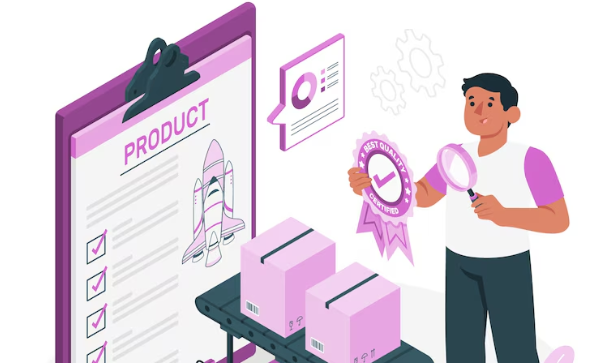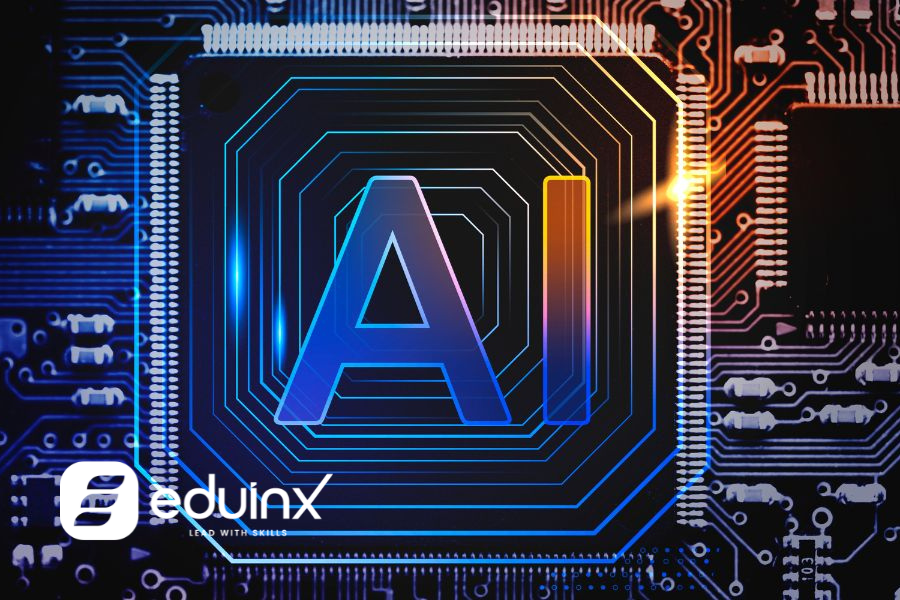Introduction
Did you know that a highly skilled product manager has the ability to increase the company’s profits by 34.2%? This makes them the most sought-after resource across several industries. With the recent increase in demand for AI product manager jobs, there is a vast scope for aspiring professionals seeking to learn AI product management. Also, since AI is now a practical use case for mainstream organizations of different sizes, AI product managers are mainly used to ideate, develop, and monetize AI products. Product management involves developing, launching and supporting products intersecting for business, technology, and user experience.
Products aimed at business focus on maximizing the value for key stakeholders by coordinating and leadership across multiple business domains like marketing, finance, and operations. Product managers do not have to code, however, they need to understand the basic technical options, constraints, and processes to guide product development. In SaaS and marketing, products that do not provide a good user experience are not used prominently.
In this blog, you will learn:
- ● Who are AI Product Managers?
- ● Why do Product Managers Need to Know AI?
- ● AI Product Strategy
- ● Roles and Responsibilities of AI Product Managers (job scope)
- ● Potential Challenges and future scope
Who are AI Product Managers?
There was a time when large corporations needed to extract value from consumer packaged goods. Software companies began to build, improve, and monetize digital products to ensure that they are profitable for most businesses. Product managers (PMs) are experts in designing products and their core functionalities. Now that organizations have begun embedding AI into their systems, they need to manage the launch and development of operations of these intelligent systems. They need expert PMs who have a good grip on AI products. The beauty here is that an AI PM need not be an expert in developing new AI systems or writing extensive code, they need to be well-versed with AI technology and must be able to guide businesses on the right path with thought leadership and define a clear road map as well.

Why do Product Managers Need to Know AI?
In order to stay updated with the latest trends and technological advancements in the industry, PMs need to understand the potential pitfalls of AI and machine learning to drive innovation. This is sure to help them create high-performance products that satisfy the dynamic needs of the market and offer a customized user experience. The main component of understanding AI as a PM enables you to harness the power of AI in formulating an appropriate strategy that ensures business success.
AI Product Strategy
An AI product strategy helps businesses to understand the business context and the potential of AI to resolve challenges, drive innovation, and mitigate risks proactively. With well-defined product strategies, PMs can translate AI capabilities into useful functionalities that are a valuable addition for end-users. This ensures seamless integration into existing workflows along with increased scalability and accuracy in performance. PMs collaborate with data engineers to understand data science principles like bias mitigation, model interpretability, and data integrity. This is critical for translating complex AI capabilities into ethical and user-friendly product features.

Roles and Responsibilities of AI Product Managers
Although the roles and responsibilities of a PM vary based on the requirements and use case of a particular organization or use case, the core roles and responsibilities remain the same. This is because the key to management depends on the success of the products along with the requirements of the stakeholders. Here are a few key aspects that an AI PM needs to focus on as a part of their job role and objectives to ensure the collective growth of an organization.
- ● The need to conduct research on AI and industry-specific trends
- ● Gather insights from experts and become a thought leader
- ● Look for opportunities to use advanced analytics, AI, and machine learning to address specific requirements
- ● Develop a compelling product vision and ensure clear communication
- ● Pave the right product roadmap that defines future releases for a long-term product strategy
- ● Use the best practices in data science to deliver product increments and build the right feedback loops by defining MVP
- ● Manage the product backlog by managing product ideas and breaking down the backlog into bite-sized pieces of value
- ● Ensure that the backlog is transparent and understandable
- ● Prioritize the backlogs accordingly
- ● Identify the right model and business outcome metrics to measure the product’s success
- ● Steer product development by working with data scientists, gen AI professionals, and ML engineers
- ● Work with marketing teams to launch the product and take ownership of the entire product life cycle
- ● Ensure that the end product and data usage comply with ethics and responsible best practices
These roles and responsibilities are also common for job roles like machine learning product manager, data science product manager, AI product owner, analytics product manager, data product owner/manager and other similar roles.
Potential Challenges and Future Scope
Some of the key challenges faced by AI PMs include the need for specialized knowledge in developing ML products with a deep understanding of data science to guide the development of AI-powered products. ML models require significant resources and data storage for large-scale deployment. AI PMs need to be patient in spearheading the development cycle and tackling transparency issues. Also, they need to continuously monitor and update their teams to keep ML products relevant and effective. With only 60.3% of executive leaders having a partial understanding of the PM's value, it is ideal for AI PMs to communicate their impact and gain credit for their contributions. With the increase in AI products being deployed in the market, there is a rise in demand for PMs who are well-versed in the AI lifecycle.
The best way to learn AI in product management is through a practical approach. Eduinx is a renowned institute in the edutech space that provides mentorship in gen AI, data science, and core AI concepts. This is sure to help you build a career in AI PM and stand out from the competition. Eduinx provides a hands-on practical approach with non-academic industry experts who have over a decade of experience in AI and data science. The mentors at Eduinx assist learners with capstone projects and placement assistance in building a resume and landing the right job. Get in touch with Eduinx for more information on the course!
Reference links:
https://productschool.com/blog/artificial-intelligence/guide-ai-product-manager https://www.datascience-pm.com/ai-product-manager/




